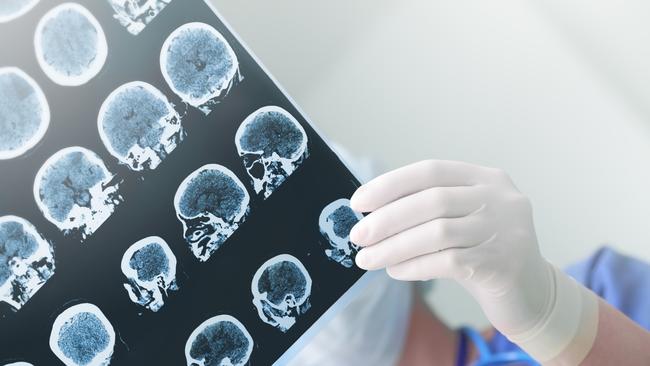How a damage-busting stroke drug was almost lost to greed
Melbourne researchers have reversed damage in the brains of animals three days after stroke using a potentially game-changing drug a company tried to prevent from reaching pharmacy shelves, resulting in a dramatic $400 million court settlement.
VIC News
Don't miss out on the headlines from VIC News. Followed categories will be added to My News.
Melbourne researchers have reversed damage in the brains of animals three days after stroke, using a drug that almost had its chance to reach the pharmacy shelves snatched, following a dramatic $400 million court settlement.
Almost half a million Australians are living with the effects of stroke.
And while there are effective treatments given in the initial hours after stroke to limit brain injury, and exercise trials in hospital wards to promote recovery, there are no interventions to trigger the recovery or repair of brain cells in the days or weeks following a stroke.
YOUNG STROKE SURVIVORS STRUGGLE TO RETURN TO WORK
PUSH FOR YOUTH STROKE RECOVERY SERVICE
$1M NEEDED TO TEST BRAIN, SPINAL CORD INJURY DRUG
Just like a scab on a graze, the same thing happens in the brain after stroke with a scar forming in brain tissue to limit the cascade of inflammation beyond the initial injury site.
But this scar can expand into the healthy brain, restricting its ability to repair and form new connections.
Stroke recovery typically stagnates about six months after the brain event.
New research to be presented today at the Australasian Neuroscience Society annual meeting in Brisbane, has seen the drug Fasudil successfully walk the fine line of allowing the scar to form to protect the spread of damage, but letting brain connections crucial to recovery develop.
Despite promising trials in more than 1600 patients in Japanese patients, the drug was locked away after it was bought from its creator Asahi by a rival drug maker Actelion, fearful it would surpass their own profitable — but less effective — treatment for pulmonary hypertension.

Actelion claimed they ended the deal because the drug was not safe.
But a US court disagreed, finding in 2013 that Actelion “sabotaged” the deal and prevented a potentially game-changer drug from reaching the market.
Lead researcher Dr Carli Roulston from the Florey Institute of Neuroscience and Mental Health, who has worked largely without salary on this project after struggling to attract funding because of the drug safety rumours, said she hoped her findings would finally convince funding bodies of Fasudil’s potential.
“I had preliminary data to suggest it would work and philanthropic funding bodies who were willing to put faith in what we were doing,” Dr Roulston said.
“That hostile big-pharma takeover halted progression of this research. But we’ve persisted because you only need to spend one day on a stroke ward to know there is little in the way of interventions.”
Dr Roulston and her team are now planning to test whether the drug could be given to stroke patients many years after the stroke, to extend their potential time for recovery even further.


